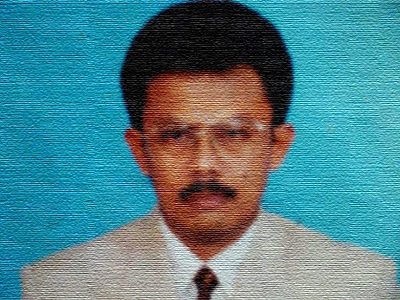Changes in Immune and Endocrine System in Women with Endometriosis
Audio/Video link (requires free RealPlayer)
Mark Perloe, MD: “I’m Mark Perloe and I’m here at the American Society of Reproductive Medicine meeting reporting for EndoZone and we’re here with Mary Lou Ballweg who is the President and Executive Director of the Endometriosis Association. You just had a very interesting paper that was published this month in Human Reproduction about endometriosis and changes in the immune system and endocrine system.”
Mary Lou Ballweg: “Yes.”
Mark Perloe, MD: "Can you share information with us?"
Mary Lou Ballweg: “This paper is in the October issue of Human Reproduction and it is very exciting for us because since the days of our first research in 1980, when we started, we had identified certain immune dysfunctions in women with endometriosis which you see in asthma, allergies, eczema, and we kept trying to track down what is going on. Why would this be happening in endometriosis? We’ve tracked this and tracked this and now, with the help of the NIH, have indeed shown that these women have a very high risk of five different
autoimmune diseases, chronic fatigue immune dysfunction syndrome, and fibromyalgia. Which women have the highest risk in the group of women with endometriosis? -- the ones with the atopic diseases.”
Mark Perloe, MD: “Well, one of the things we have seen at this meeting that I think is astounding and opens up a whole new range of research opportunities is looking at the presence of messenger R&A in eutopic endometrium and ectopic endometrium and the expression of these messages to go back and see what’s going on specifically in the tissues."
Mary Lou Ballweg: "Yes"
Mark Perloe, MD: “How do we take the associations and get from the knowledge of an association to a better understanding of the causes or potential treatment manipulation? I mean it’s big jump from this to knowing what’s going on on the molecular basis.”
Mary Lou Ballweg: “Actually, I think what this paper does is it shows us, it gives us evidence for what we’ve seen in the Association for many years, that you can actually predict which children are going to go on to develop endometriosis by looking at their immune function now. Even starting with infancy. And in fact, we are working on our third book now, and in that book I address a major area on prevention, even preconception and then what’s happening pre-natally, and then what’s happening in infancy. We truly believe we actually will, with the help of some wonderful clinicians and researchers, be able to identify ways to forestall the development of endometriosis and these other diseases. But we will have to start very, very early in the life of that organism.”
Mark Perloe, MD: “Well, that’s one of the things as a clinician I’m frequently troubled by and that is the patient who comes in and says, ‘My sister had a hysterectomy, my mother had an early hysterectomy, am I going to get this, do I need a laparoscopy now’, yet they are asymptomatic. Do we know clues in history and then if we find these clues what sort of intervention? Is there a nutritional intervention, blood testing we ought to do that will help us get a handle and maybe forestall the development of more severe disease?”
Mary Lou Ballweg: “I hear you. That’s a very good question. What I’m hearing from clinicians is that even in that asymptomatic patient, she may be asymptomatic as far as pelvic pain, but have other symptoms. Look at the history, (and granted a reproductive endocrinologist and gyns might not be in the best position to do this), but consider sending them to some of our colleagues who can address the immune system. Clearly this person is at risk for development of some of these diseases. Alternatively, as one of the doctors just told me on the floor here, just before I came up here, he said, ‘Whenever I see a patient come in with an autoimmune disease I immediately know I’ve got to look at her pelvis because she is at high risk for endometriosis’. So I think it goes both ways, but clearly we need some collaborations between our field and the field of immunology before we’re really going to be able to say this is the mechanism and this is how we can address it.”
Mark Perloe, MD: “One of the things, and looking at pathogenesis, and we’ve discussed this in other presentations, it’s unclear as to the role of the immune system in endometriosis. We know that every woman has retrograde menstruation and every implant, or every woman has the potential for implantation and invasion, but it appears that either the immune system is being overwhelmed, or is incompetent, or these lesions somehow are massed in women with endometriosis. Do you feel that there are any clues in this that will better help us answer those questions?”
Mary Lou Ballweg: “I think that the clues might be to look at the entire medical history of that woman, what else is going on in this woman besides the gyn things. That might help you determine that you really are going to have to go a little bit further with that patient. But it’s a little bit early days; the paper has just come out. We now are looking at the same data in the families and I think it’s going to take a little bit more before we can say exactly what we should be doing in our field. But I think it’s a heads-up for all of us in our field to really be looking at that bigger picture: The immune system’s role in endometriosis. I’m sure you are aware of this data, that Dr. Laufer at Harvard has now been able to identify endometriosis in young girls even before their first period. He usually identifies GI symptoms first, and that leads him to exploration and discovery of endometriosis. Maybe we can head it off if we get in there a little sooner although I’m not exactly sure how to do that.”
Mark Perloe, MD: “Well, I think us clinicians and researchers are quite lucky to have the Endometriosis Association on our side and helping to support research to get some answers and get direction on moving ahead. Thank you so much.”
Mary Lou Ballweg: “Thank you.”
© www.EndometriosisZone.org
BLOG DOKTER SPESIALIS KEBIDANAN DAN PENYAKIT KANDUNGAN ( Obstetric's & Gynecologist Blog ) Sumatera Barat.,Indonesia
SAVE YOUR BABY'S, SAVE NEXT GENERATION'S
SAVE YOUR BABY'S, SAVE NEXT GENERATION'S
Search This Blog
- Universitas Andalas Website
- TRIGEMINAL NEURALGIA LECTURES AND TREATMENT
- Maternal and Child :Research and Article
- dr Firman. Abdullah SpOG/ OBGYN .Personal Edition
- dr Firman Abdullah SpOG / ObGyn.com
- Dr Djohanas Djohan Abdullah Memorial Hospital.com
- Bukittinggi International Hospital.com
- Aliansi Rakyat Anti Korupsi Bukitinggi.com
Jam Gadang.Bukittinggi. Sumatera Barat .Indonesia
24.jpg)

Bung Hatta statue ,Bukittinggi
About me.....
IKATAN DOKTER INDONESIA (IDI).Sumatera Barat

INDONESIAN MEDICAL ASSOCIATION
ASSALAMUALAIKUM........
dr Firman Abdullah SpOG / OBGYN
Peer - Review..Cyberounds
Blog Archive
-
►
2008
(1)
- ► March 2008 (1)
-
▼
2009
(387)
- ► April 2009 (87)
-
▼
May 2009
(91)
- World Health Day 2009 ' Save Lives. Make hospitals...
- Pelvic exercises 'can help with childbirth and rec...
- More hysterectomy patients 'keeping cervix'
- Ovary removal 'may increase associated health risks'
- 'Fat gene' associated with PCOS
- Obese women 'at increased risk of birth defects'
- Resolution on Female Genital Mutilation
- Newborn babies have got rhythm, according to study
- Breastfeeding 'key during first six months'
- Mothers 'need breastfeeding support'
- Baby dies after receiving kiss infection
- Yoga 'can reduce menopause symptoms'
- ACOG President Advises Against Unnecessary Obstacl...
- Asoprisnil looks promising for endometriosis and u...
- Drospirenone and estradiol: a new option for the p...
- Endometriosis Surgery, State of the Art
- A call for centres of excellence to treat endometr...
- A Gonadotrophin-releasing Hormone Agonist compared...
- Accuracy of laparoscopic diagnosis of endometriosi...
- ACOG issues new practice bulletin on chronic pelvi...
- Adhesions in relation to laparoscopic surgery for ...
- Adolescent endometriosis
- Aromatase in endometriosis
- The Endometriosis Coping Zone Bowel Symptoms
- Changes in Immune and Endocrine System in Women wi...
- EndometriosisZONE.org Current Concepts and Researc...
- Dietary modification to alleviate endometriosis sy...
- Endometriosis does not impair obstetric outcome
- Endometriosis of the rectovaginal septum
- Endometriosis: The Four Pillars of Healing
- Endometriosis: the importance of early diagnosis a...
- GnRH Analogues in the Management of Endometriosis
- Is Laparoscopy the Gold Standard for the Diagnosis...
- Laparoscopic intraperitoneal injection of human in...
- Laparoscopic surgery helps relieve endometriosis pain
- Laterality of Endometriosis
- Link Between Migraine, Endometriosis Found
- Many women in Germany prefer long-cycle oral contr...
- Patterns of Understanding the Genetics of Endometr...
- Pre and post operative medical therapy for endomet...
- EndometriosisZONE.org Progesterone resistence in e...
- Radical endometriosis surgery is 'effective'
- Surgical Treatment For Endometriosis: Dr. Togas Tu...
- Tips for Dealing with Hot Flashes and Night Sweats...
- The LUNA procedure has no effect on endometriosis ...
- The Problem with Adhesions
- Extraperitoneal endometriosis, catamenial pneumoth...
- Managing endometriosis in teenagers
- Probable neuroimmunological link between Toxoplasm...
- What Causes Schizophrenia?
- CMV - Cytomegalovirus
- How the Herpes Simplex Virus Works
- Minilaparotomy and endoscopic techniques for tubal...
- Oral contraceptives for functional ovarian cysts
- Oral contraceptive pill as treatment for primary d...
- Steroidal contraceptives: effect on bone fractures...
- Prenatal administration of progesterone for preven...
- Minilaparotomy and endoscopic techniques for tubal...
- Danazol for pelvic pain associated with endometriosis
- Danazol for heavy menstrual bleeding
- Immersion in water in labour and birth
- Phenobarbital prior to preterm birth for preventin...
- Hysterectomy versus hysterectomy plus oophorectomy...
- Early postnatal discharge from hospital for health...
- Dehydroepiandrosterone (DHEA) supplementation for ...
- Total versus subtotal hysterectomy for benign gyna...
- Antibiotics for prelabour rupture of membranes at ...
- Abdominal surgical incisions for caesarean section
- Caesareans associated with fewer subsequent pregna...
- RCOG releases updated guidance on air travel durin...
- Too much exercise in early pregnancy may cause pre...
- Use of steroid in preterm birth appears safe
- Saving women's lives
- Vitamin E appears to relieve painful periods and r...
- Planned Caesarean decreases risk of complications ...
- Communicating the health risks and benefits of rep...
- RCOG Response to LIFE Claims on Link Between Abort...
- Elevated Rising CA 125 with Adenomyosis ---------...
- Ovarian Endometrioma Associated With Extremely Ele...
- Ovarian cancer in a woman previously diagnosed wit...
- Elevation of tumour marker CA-125 in serum & body ...
- MULTI-FOCAL EXTRA-UTERINE ENDOMETRIAL STROMAL SARC...
- LAPAROSCOPY INFORMATION
- Screening for vaginal shedding of cytomegalovirus ...
- Epstein–Barr Virus and Cytomegalovirus in Autoimmu...
- Systemic lupus erythematosus in adults is associat...
- A FOCUS ON FIBROIDS:
- Herpesvirus, cytomegalovirus, human sperm and assi...
- Influence Of The Menstrual Cycle On The Female Brain
- Cervical cancers after human papillomavirus vaccin...
- Health and Nutritional Benefits from Coconut Oil: ...
- ► August 2009 (54)
- ► September 2009 (21)
- ► November 2009 (4)
- ► December 2009 (11)
-
►
2010
(45)
- ► January 2010 (6)
- ► February 2010 (11)
- ► March 2010 (1)
- ► April 2010 (7)
- ► November 2010 (2)
-
►
2011
(4)
- ► February 2011 (2)
- ► March 2011 (2)
FEEDJIT Live Traffic Feed
Discussion Board
FEEDJIT Live Traffic Map
FEEDJIT Recommended Reading
FEEDJIT Live Page Popularity
dr Firman Abdullah SpOG / OBGYN

Subscribe to:
Post Comments (Atom)
BMI CALCULATOR
ACHMAD MOCHTAR GENERAL HOSPITAL BUKITTINGGI

RUMAH SAKIT ACHMAD MOCHTAR BUKITTINGGI
Firman Abdullah Bung
drFirman Abdullah SpOG / ObGyn

KELUARGA BESAR TNI-AD
Dr Firman Abdullah SpOG/ OBGYN, Bukittinggi, Sumatera Barat ,Indonesia
Bukittinggi , Sumatera Barat , Indonesia

Balaikota Bukittinggi
dr Firman Abdullah SpOG / OBGYN

Ngarai Sianok ,Bukittinggi, Sumatera Barat.Indonesia

Brevet in Specialist Obstetric's & Gynecologist 1998

dr Firman Abdullah SpOG/ObGyn


Dokter Spesialis Kebidanan dan Penyakit Kandungan . ( Obstetric's and Gynaecologist ) . Jl.Bahder Johan no.227,Depan pasar pagi ,Tembok .Bukittinggi 26124 ,HP:0812 660 1614. West Sumatra,Indonesia
Sikuai Beach ,West Sumatra ,Indonesia


Fort de Kock, Bukittinggi






No comments:
Post a Comment